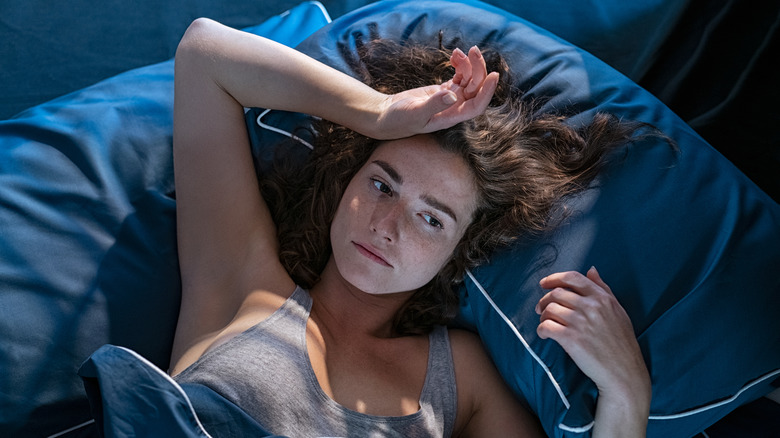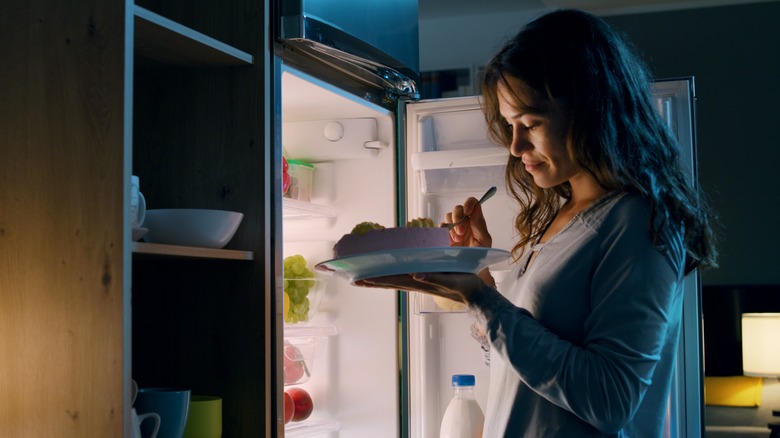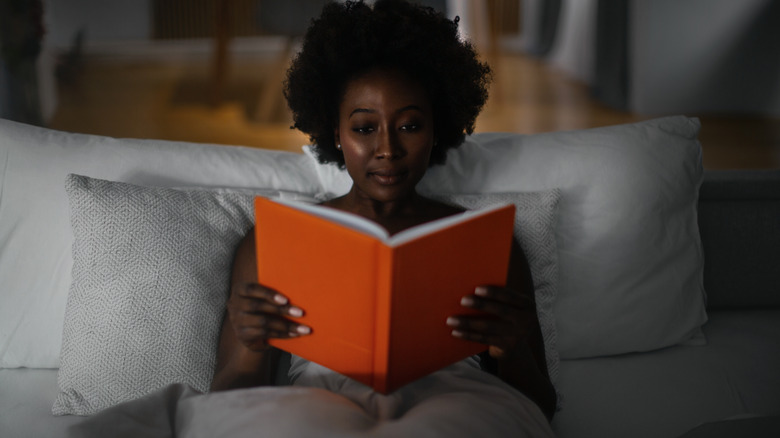If You Have Trouble Falling Asleep, The Quarter-Hour Rule Is Going To Revolutionize Your Life
After a long day of commuting, staring at screens, and ticking off your to-do list, settling down to sleep may be far from your reach, even when it's something you desperately want. The trick of tiring ourselves out until we fall asleep may have worked when we were kids, but as adults, our brains are just wired to stay awake.
More than 50 million Americans have some type of chronic sleep disorder. Whether it's having trouble falling asleep or the inability to stay in the REM cycle, a significant portion of the country can't sleep like they ought to. Things like depression, anxiety, and stress often contribute to the failure to go to sleep right away. While these three things can create physical health problems, lack of sleep is no different.
When you don't sleep, health issues such as depression, cognitive problems, an increased risk for diabetes and high blood pressure, and weight gain may arise. If you're tired of counting sheep with no relief, read ahead for a method that may help you fall asleep faster.
What's the quarter-hour rule?
You know when your parents told you that by your bedtime, you needed to be lying down, whether you were fast asleep or staring at the ceiling? Well, the quarter-hour rule rejects that. Instead, the quarter-hour rule requires getting up for 15 minutes and going to bed when you start to feel tired.
According to researchers at the National Health Service in the UK, when insomniacs aren't able to sleep when in their bed, they start to associate it as a place for being awake. Instead, you should get up, preferably going to another room to do an activity that will make you tired. Try listening to calming music, reading a book without too much action, or snacking on foods guaranteed to help you sleep at night, like cherries, bananas, or cereal.
Although it's called the quarter-hour rule, you don't need to watch the clock religiously. Estimate what 15 minutes feel like, and spend the time doing things that make you sleepy. When you start to feel your eyes drooping, go back to the bedroom and see if you can get any shut-eye.
Other tips and tricks to help you fall asleep
One of the biggest things that sleep experts recommend is to limit screen time before falling asleep. Not only does the blue light emitted from screens make it hard to fall asleep, but chances are that whatever you're looking at causes your brain to buzz constantly instead of helping wind it down. Set the same bedtime every night and set aside your devices thirty minutes before.
Try doing something relaxing, like reading a book or journaling. You can also wind down with a guided sleep meditation app like Insight Timer or Calm – simply turn up the volume and lock your phone so the light doesn't interrupt your sleep. Aromatherapy can also be a great way to lull you into a deep sleep. Scents like lavender, cedarwood, and jasmine are stress relievers that make sleeping easier.
Spritz your pillows with the Drowsy Sleep S.O.S. Pillow Spray, which has notes of lavender, geranium, and cedarwood, and practice deep breathing. The process helps to shed any lingering stress hanging over your head at the end of the day.


